‘A great day for America’: Donald Trump celebrates shock resignation of FBI director Christopher Wray
US President-elect Donald Trump has been relieved of one huge potential headache as he prepares to take power.
World
Don't miss out on the headlines from World. Followed categories will be added to My News.
US President-elect Donald Trump has been relieved of one potential headache as he prepares to take office in January, with the current FBI director, Christopher Wray, announcing he will resign at the end of the Biden administration.
The decision spares Mr Trump from the bother and controversy that would come with firing Mr Wray, whom he appointed to a ten-year term as the agency’s director during his first stint as president in 2017.
And this turn of events will make it easier for Mr Trump to install his already-announced pick to replace Mr Wray, Kash Patel, a former prosecutor with what we might euphemistically call an interesting political record. Pending Mr Patel’s confirmation by the US Senate, of course.
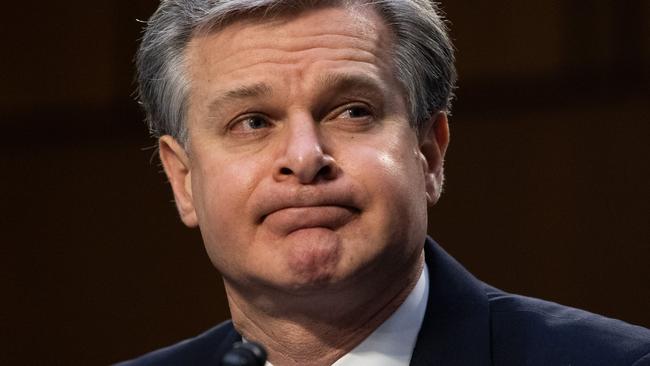
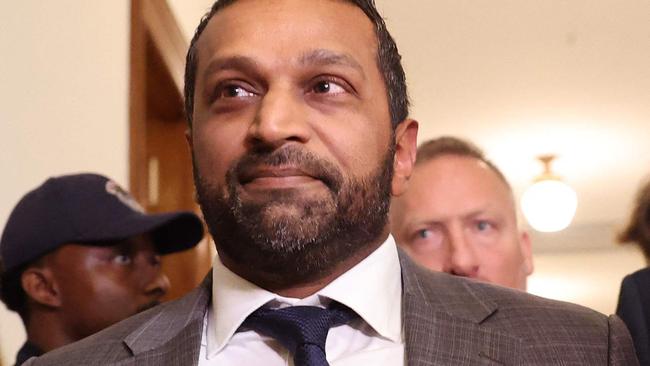
According to The New York Times, Mr Wray “told bureau employees on Wednesday that he intended to resign in January, bowing to the reality that Donald Trump had publicly declared his desire to replace him”.
“I’ve decided the right thing for the bureau is for me to serve until the end of the current administration in January and then step down,” Mr Wray told FBI workers.
“This is the best way to avoid dragging the bureau deeper into the fray, while reinforcing the values and principles that are so important to how we do our work.”
He could have stayed in the job and forced Mr Trump to sack him. Stepping down voluntarily ensures a smoother transition to the new president’s vision for the FBI.
Mr Wray got offside with Mr Trump for a few reasons in recent years, but chiefly as a result of the agency’s decision to raid the President-elect’s Florida residence, Mar-a-Lago, in 2022.
Mr Trump alluded to that incident in his statement about Mr Wray’s resignation today.
“The resignation of Christopher Wray is a great day for America, as it will end the Weaponisation of what has become known as the United States Department of Injustice,” Mr Trump wrote on his social media platform, Truth Social (random capitalisations his).
“I just don’t know what happened to him. We will now restore the Rule of Law for all Americans. Under the leadership of Christopher Wray, the FBI illegally raided my home, without cause, worked diligently on illegally impeaching and indicting me, and has done everything else to interfere with the success and future of America.
“They have used their vast powers to threaten and destroy many innocent Americans, some of which will never be able to recover from what has been done to them.
“Kash Patel is the most qualified Nominee to lead the FBI in the Agency’s History, and is committed to helping ensure that Law, Order, and Justice will be brought back to our Country again, and soon.
“As everyone knows, I have great respect for the rank-and-file of the FBI, and they have great respect for me. They want to see these changes every bit as much as I do.”
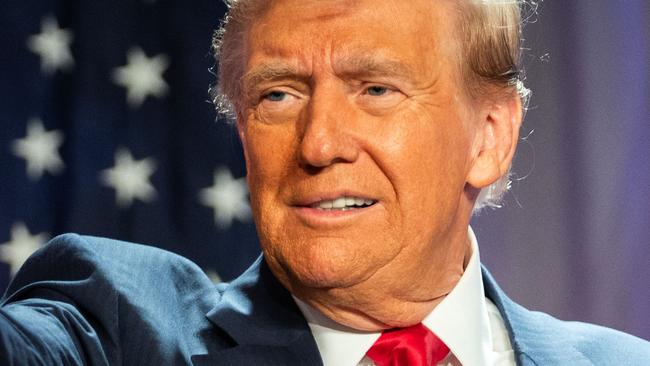
Bit to unpack, there.
Mr Trump alleges the FBI “illegally” raided Mar-a-Lago “without cause”. The agency did, in fact, obtain a search warrant for the property from a court, using the usual legal channels. The “cause” was Mr Trump’s alleged illegal retention of government documents, including some that were highly classified, after he had left office and become a private citizen.
The government’s argument, here, was that Mr Trump had no more right to store sensitive government documents at his personal property than any other private citizen. He believed that, as a former president, he could keep what he wanted.
The government had spent more than a year trying to get Mr Trump to return the documents, which he had stashed at his homes in both Florida and New Jersey, by the time it resorted to obtaining a search warrant.
Mr Trump was also alleged to have lied to authorities by claiming he had returned all the documents when some still remained in his possession.
After criminal proceedings began, the former president argued that the government documents in question were actually his private property, and that he had declassified them before leaving the White House.
The case, of course, will now go nowhere, given Mr Trump’s re-election to the presidency. The American Department of Justice has a longstanding policy that sitting presidents should not be prosecuted; hence special counsel Jack Smith’s decision to drop it.
It was already in something of a legal limbo anyway, having been thrown out by a Trump-appointed judge in Florida, pending an appeal from the government.
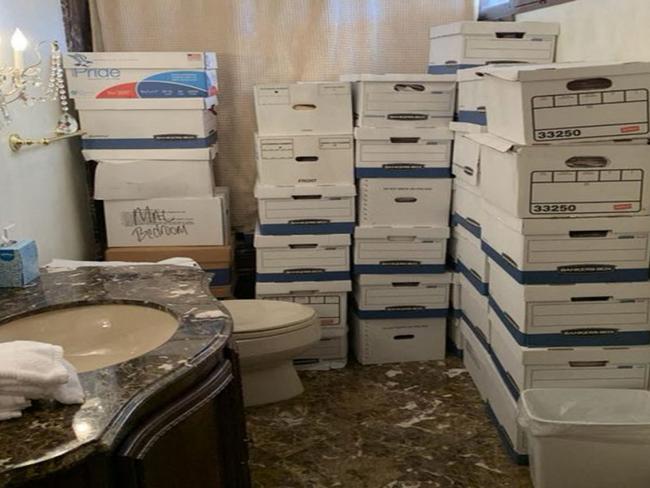
Mr Trump’s accusation that Mr Wray’s FBI “worked diligently on illegally impeaching and indicting me” presumably relates to a Department of Justice investigation, and criminal case, concerning his actions following the 2020 election.
You can ignore the word “impeaching”, there. I’m unsure why Mr Trump even included it. Impeachment is the process by which America’s Congress can remove a sitting president; the FBI has nothing to do with it, and it has no relevance at all to someone who has left office.
Mr Trump was impeached twice by the House of Representatives during his first term: once over allegations that he withheld military aid to Ukraine in an attempt to pressure its president Volodymyr Zelensky into announcing a politically damaging investigation of his opponent, Joe Biden; and once over the Capitol riot on January 6, 2021, during which a mob of Mr Trump’s supporters stormed Congress in an effort to stop Mr Biden’s election win from being certified.
Two impeachment trials were held in the Senate. The first resulted in 48 senators voting to convict Mr Trump, and 52 voting to acquit. The second yielded 57 guilty votes, seven of them coming from Mr Trump’s own party, and 43 not guilty votes. Neither of those verdicts came anywhere near the 67-vote supermajority required to remove him from office and bar him from running again.
Anyway, that process played out entirely in Congress; the FBI was not involved. Mr Trump’s issue here is with Democrats in the House of Representatives, and the handful of Republicans who supported his second impeachment (none voted for the first one).
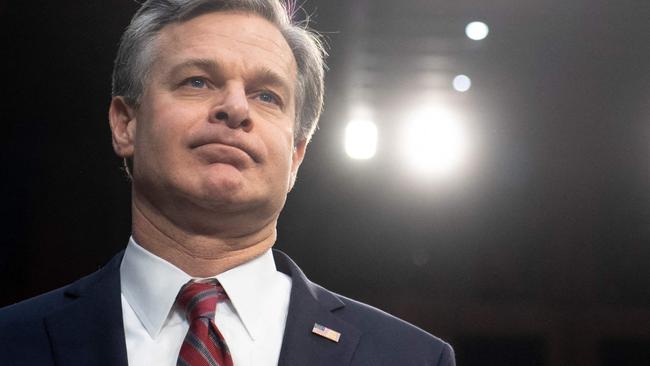
The agency was involved in Mr Smith’s second federal case against Mr Trump, which alleged he had acted illegally in his efforts to overturn his election defeat to Mr Biden.
The case concerned a scheme, hatched by Mr Trump’s allies and allegedly involving the then-president himself, to reject the electors from several key states he had lost to Mr Biden, and to replace them with pro-Trump electors.
So, for example, Mr Biden had won the 10 electoral votes from Wisconsin. Under the alleged scheme, Congress would have rejected those 10 votes, and given them to Mr Trump instead.
The ultimate goal, if realised, would have seen Mr Trump cross the winning threshold of 270 electoral votes, and thus remain president, in defiance of the voters.
Mr Trump’s allegations of widespread voter fraud, which he claimed (and still claims) robbed him of victory over Mr Biden, were tested repeatedly in court, and failed due to a lack of any credible supporting evidence. Judges, including lifelong conservatives appointed by Mr Trump himself, berated the then-president’s legal team for making spurious claims.
Trump FBI pick’s list of targets
So, Mr Patel. His confirmation by the Senate is not a certainty, though given the chamber will be controlled by Mr Trump’s Republican Party, his chances are decent.
And that could have significant ramifications for American law enforcement. Mr Patel is someone who has previously expressed a desire to punish Mr Trump’s political enemies. He included a list of those enemies in a recent book of his, called Government Gangsters.
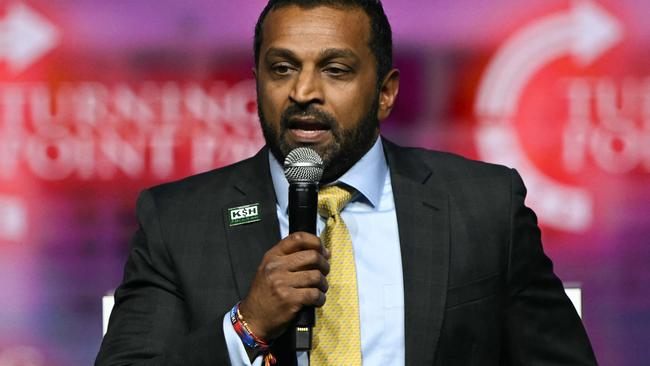
The book’s appendices encompass a catalogue of “members of the executive branch deep state”, a list Mr Patel stresses is “not exhaustive”. It does not, for example, include “the entire fake news mafia press corps”.
America’s executive branch is the White House and the federal agencies it controls; Congress and the Supreme Court are separate branches of the nation’s government.
So Justice Ketanji Brown Jackson, or whatever other progressive you might pick from the non-executive branches, need not worry about Mr Patel’s hit list.
Here, however, are some people who apparently should worry. They fall into two broad categories: prominent Democrats (duh), and prominent Republicans who have criticised Mr Trump, or otherwise thwarted him. Bonus points added if they have testified against him under oath in some sort of legal or congressional proceeding – that’s a big, big no no.
We’re going to go in alphabetical order (note that I’m skipping most of the names in question, here. Otherwise we’d be here all day).
Lloyd Austin. The current American Defence Secretary. A top US Army general who previously served as the head of United States Central Command.
Bill Barr. Mr Trump’s second attorney-general. He followed on from Jeff Sessions, who ran afoul of the then-president’s mood by recusing himself from overseeing a Justice Department investigation into Russia’s election interference.
Mr Barr, a committed conservative, was also attorney-general under the Republican president George H.W. Bush. His unforgivable offence, according to Mr Patel, was his refusal to support Mr Trump’s debunked claims about election fraud in 2020.
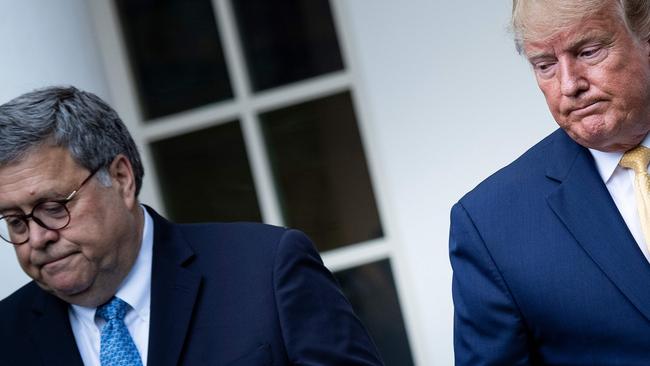
John Bolton. Mr Trump’s national security adviser in the White House during much of his first term. A notorious foreign policy hawk, which is a polite way of saying he seems to really like American military intervention overseas. He became a pariah, among Republicans, when he decided Mr Trump only cared about himself and was “unfit” to be president.
Joe Biden. I presume there’s no need to elaborate.
John Brennan. A former director of the CIA, and a vocal critic of Mr Trump. His remarks about the President-elect include a prediction that he will become “a disgraced demagogue in the dustbin of history”. Mr Trump responded to that by calling Mr Brennan a “total lowlife”. They don’t think much of each other.
Pat Cipollone. Mr Trump’s White House counsel, i.e. his top legal adviser, for most of the then-president’s first term. Like Mr Barr, Mr Cipollone became a hated enemy of the MAGA movement when he contradicted Mr Trump’s baseless claims about election fraud.
James Clapper. A former director of national intelligence, the role that oversees all of America’s intelligence agencies, and liaises with the president.
Mr Clapper is among Mr Trump’s fiercer critics from the intelligence community, and has made allegations – unsupported by evidence, I should stress – that Mr Trump is a Russian ”asset”.
Hillary Clinton, of “lock her up” fame. Again, no real need to explain here.
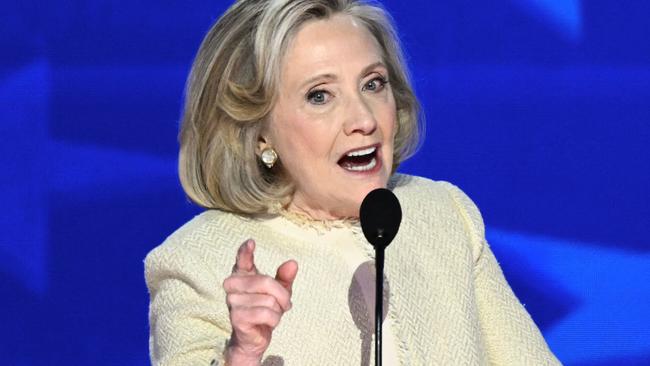
Mark Esper. Mr Trump’s defence secretary. Wasn’t a fan of Mr Trump’s idea to use the military against American protesters, or indeed the then-president’s suggestion to shoot said protesters. Only in the leg, mind you!
Alyssa Farah Griffin. Mr Trump’s director of communications in the White House, albeit only for a few months, and before that press secretary to vice president Mike Pence.
Ms Griffin has since become a vocal critic of Mr Trump. One might be forgiven for thinking there is a degree of cynicism involved.
Merrick Garland. The current US attorney-general. Mr Garland would have approved the prosecutions of Mr Trump for retaining all those sensitive government documents after leaving office, and for his alleged role in fomenting the insurrection on January 6, 2021.
Stephanie Grisham. She served as Mr Trump’s White House press secretary, and before that as Melania Trump’s chief of staff. Yet another former Trump staffer who has become a critic.
Kamala Harris. I need not elaborate.
Gina Haspel. One of Mr Trump’s CIA directors. It’s unclear what she did wrong.
Fiona Hill. A former staffer on the US national security council, with a specialisation in Russian affairs. She has been an advocate for aiding Ukraine in its efforts to repel Vladimir Putin’s invasion. This has somehow become a bad thing in much of Trump-world.
Eric Holder. Barack Obama’s attorney-general.
Cassidy Hutchinson. An aide to one of Mr Trump’s White House chiefs of staff, Mark Meadows, who agreed to testify about what she witnessed in that job. And the things she witnessed were not flattering.
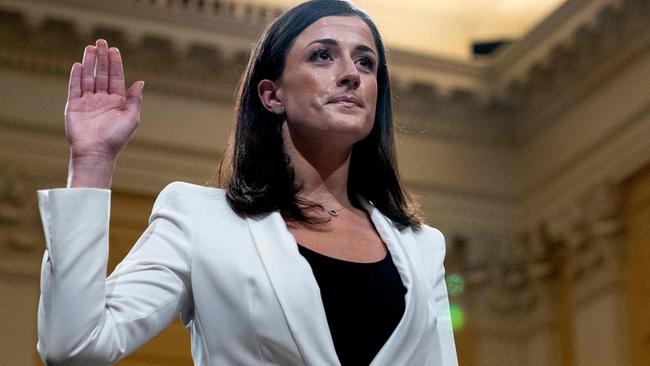
Mark Milley. Chairman of the joint chiefs of staff – America’s most senior military officer. That’s a role he held under both Mr Trump and Mr Biden. Like Mr Esper, Gen Milley ran afoul of Mr Trump when he refused to condone the use of America’s military against protesters. His remarks since, suggesting Mr Trump is a “fascist”, have not helped.
Robert Mueller. A former director of the FBI who was appointed by Rod Rosenstein, Mr Trump’s (Republican) deputy attorney-general, to investigate Russian election interference. His investigation led to several prosecutions and guilty pleas, though Mr Trump and his supporters mostly focus on Mr Mueller ultimately declining to allege any “collusion” between Mr Trump’s campaign and Russia.
The suggestion, here, is that the entire investigation was a “hoax” designed to unfairly malign Mr Trump, despite its prosecution of multiple criminal actors. Make of that what you will.
John Podesta. Chairman of Ms Clinton’s presidential campaign in 2016.
Samantha Power and Susan Rice. The former was ambassador to the United Nations under Barack Obama; the latter was national security adviser.
Rod Rosenstein. We already mentioned this guy; he was the person who set up the Mueller investigation. A Republican, who was in that position because another Republican had recused himself, appointed yet another Republican to investigate the matter. This was apparently an unforgivably partisan anti-Trump crime. Or so Mr Patel would argue.
Alexander Vindman. This is the person who testified about Mr Trump’s phone call with Mr Zelensky, which led to the then-president’s first impeachment.
Christopher Wray. And so we come full circle.
Originally published as ‘A great day for America’: Donald Trump celebrates shock resignation of FBI director Christopher Wray



